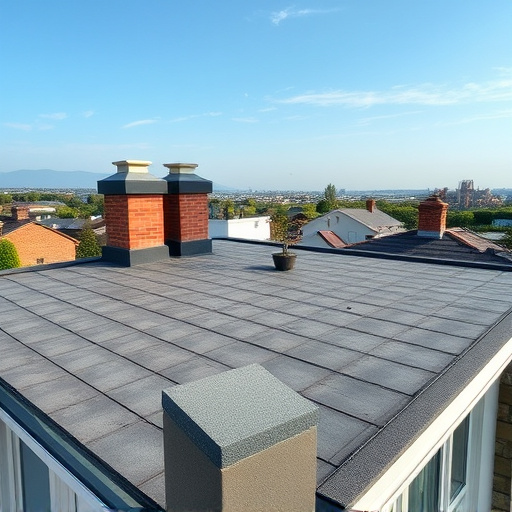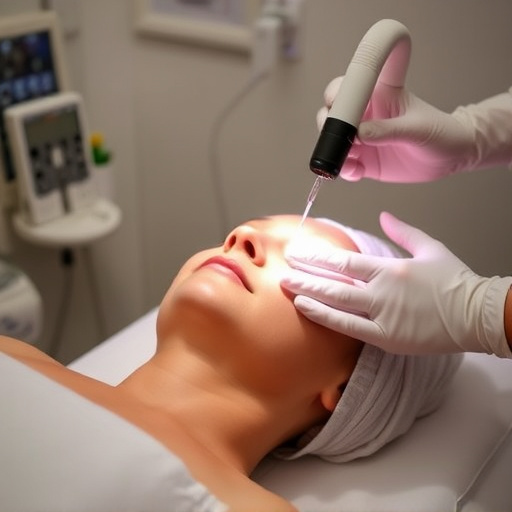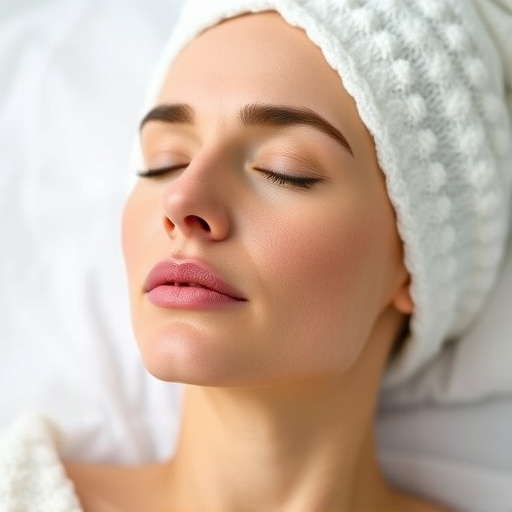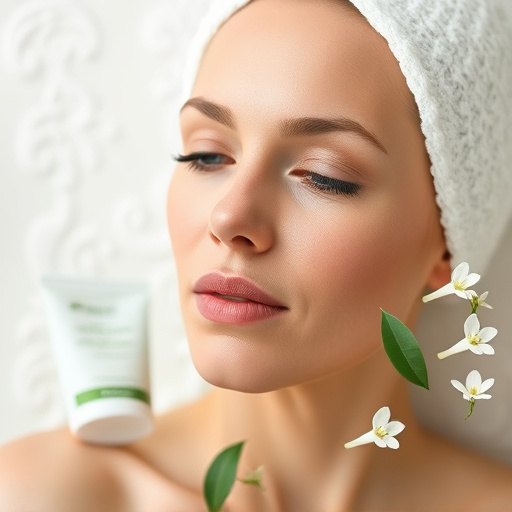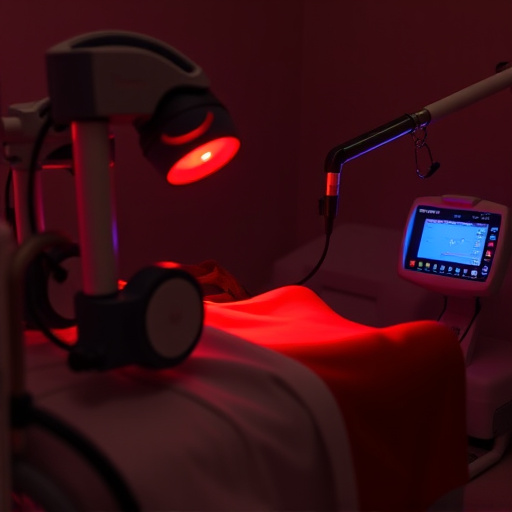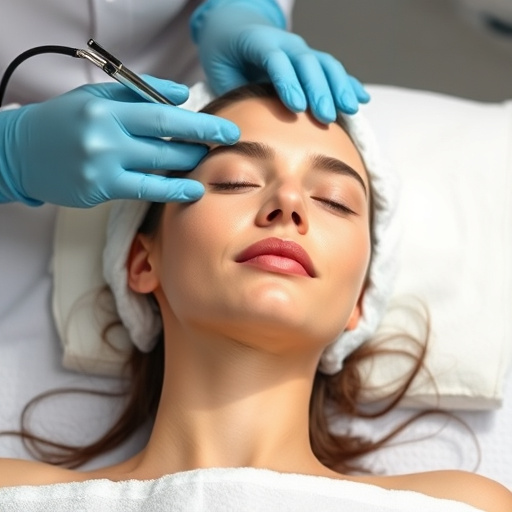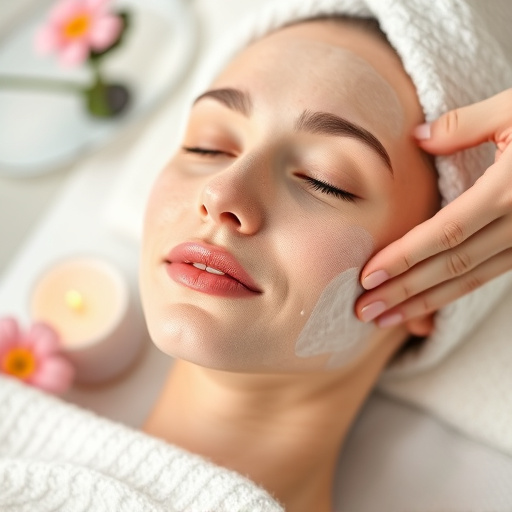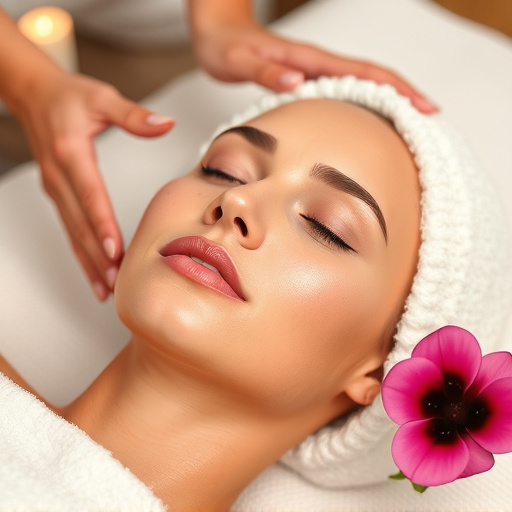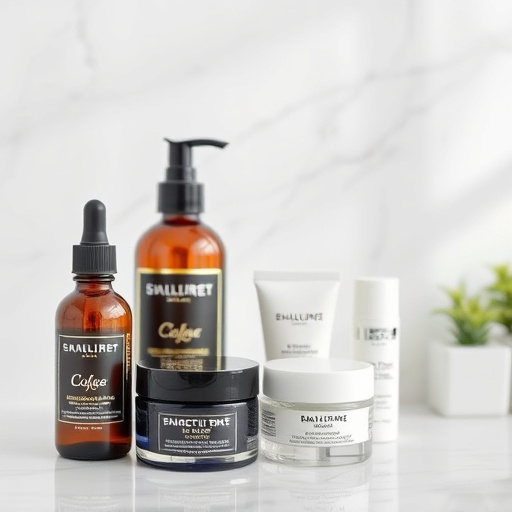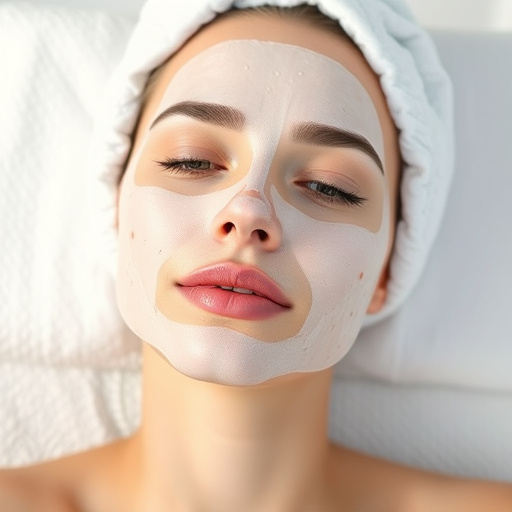Rosacea is a skin condition with various causes and triggers, managed through understanding individual factors like sun, products, stress, and food. Medical spas offer comprehensive solutions combining aesthetic treatments (e.g., laser), skincare routines, and addressing underlying causes for lasting relief. Treatment involves antibiotics, retinoids, isotretinoin, laser/IPL, and tailored skincare. Lifestyle adjustments include gentle routines, sunscreen, dietary changes, hydration, and facials for symptom management.
Rosacea, a skin condition characterized by redness and puffiness, can be managed with targeted approaches. This article explores comprehensive strategies to combat rosacea, focusing on understanding its complex triggers. We delve into medical treatments offering clear skin solutions and highlight lifestyle adjustments to soothe inflammation naturally. By combining these expert insights, individuals can effectively navigate rosacea management, achieving calmer, healthier skin. Discover proven techniques for a personalized rosacea treatment plan that works.
- Understanding Rosacea Causes and Triggers
- Medical Treatments for Clearer Skin
- Lifestyle Changes to Calm Inflammation
Understanding Rosacea Causes and Triggers
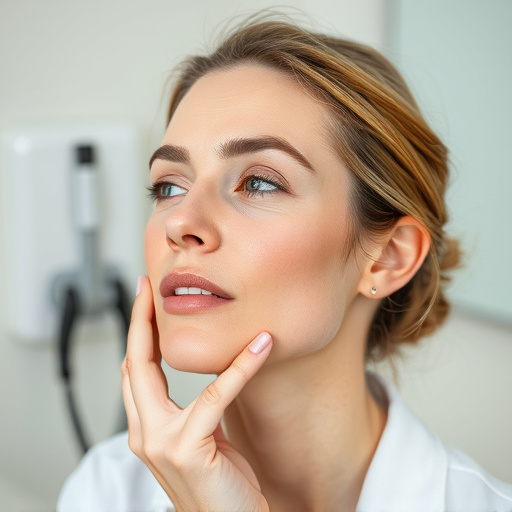
Rosacea is a complex skin condition with various causes and triggers. While the exact etiology remains unknown, experts believe it involves a combination of genetic predisposition, environmental factors, and changes in facial blood vessels. Understanding these triggers is crucial for effective rosacea treatment. Common triggers include sun exposure, certain skincare products, stress, hot beverages, and even specific foods. Identifying personal triggers is essential as they can vary greatly from person to person.
At a medical spa, professionals offer a range of services tailored to manage rosacea. These include aesthetic treatments like laser therapy and light-based treatments, which target dilated blood vessels without causing damage to the skin. Skincare routines personalized for rosacea-prone skin can also help mitigate symptoms. By addressing both the underlying causes and triggers, these expert approaches aim to improve overall skin health and provide lasting relief from rosacea’s frustrating effects.
Medical Treatments for Clearer Skin
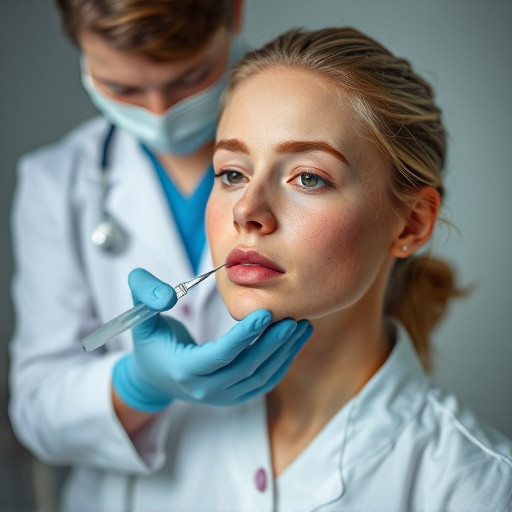
Rosacea treatment involves a multifaceted approach to achieve clearer skin. Medical treatments play a crucial role in managing this condition by targeting specific symptoms and triggers. Topical medications, such as antibiotics and retinoids, are often prescribed to reduce inflammation and minimize visible blood vessels, known as telangiectasias. These medications help calm the skin and improve its texture.
For more severe cases or when other methods fail, oral medications like isotretinoin can be effective in treating rosacea. Additionally, procedures like laser therapy and intense pulsed light (IPL) offer targeted treatments for enlarged pores and broken blood vessels, promoting overall skin health. Professional skincare routines incorporating specialized products designed to soothe and protect the skin are also integral to managing rosacea, ensuring long-lasting results.
Lifestyle Changes to Calm Inflammation
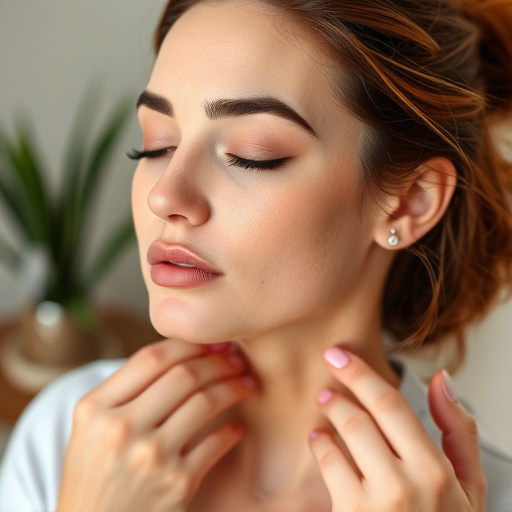
Living with rosacea can be challenging, but making some targeted lifestyle changes can significantly calm inflammation and reduce symptoms. One key aspect is adopting a gentle skincare routine. This involves using mild, fragrance-free products to avoid irritating your skin further. Additionally, protecting your face from the sun is crucial; wearing sunscreen daily helps prevent flare-ups triggered by UV rays.
Diet also plays a role in rosacea management. Anti-aging treatments like dietary changes can be effective. Incorporating foods rich in antioxidants and avoiding known triggers like spicy meals or alcohol can help reduce inflammation. Moreover, staying hydrated through adequate water intake supports skin health, including wrinkle reduction over time. Hydrating facials can also offer temporary relief and provide deep nourishment for the skin.
Rosacea triggers vary from person to person, but with a comprehensive understanding of its causes and expert treatment approaches, it’s possible to achieve clearer skin. Medical treatments, such as topical medications and laser therapy, offer effective solutions for reducing inflammation and erasing the visible signs of rosacea. Additionally, implementing lifestyle changes like stress management, dietary adjustments, and avoiding known triggers can significantly calm the skin. By targeting these specific areas, individuals can take control of their rosacea and experience lasting improvements in skin health.

